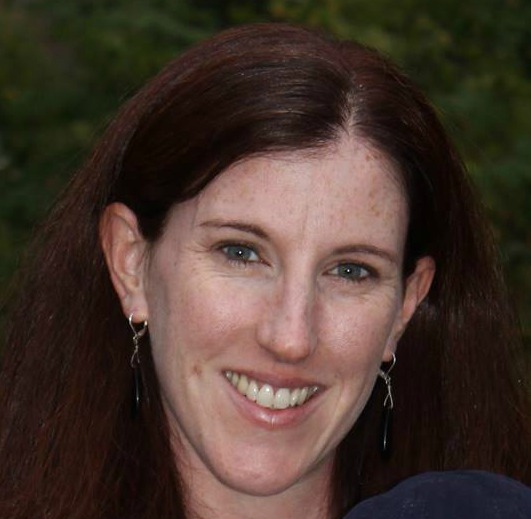By Megan Dempsey and Heather Dalal
At ALA Midwinter, the ACRL Executive Board approved the Framework for Information Literacy for Higher Education as a new information literacy document for the profession. The Framework is intended to evolve the profession’s thinking on IL and help librarians develop programs and promote IL discussions at their institutions. It’s been in the works for over a year and there has been a lot of buzz about it among information literacy librarians in the past few months. Here’s an attempt to summarize what’s been going on.
A little background
The Information Literacy Competency Standards for Higher Education were developed in 1999, approved by ACRL in 2000, and have been widely adopted by institutions, accrediting bodies, and educational associations since then. ACRL reviews standards every five years and these were up for revision in 2012. The board unanimously agreed that the Standards needed to be revised, and a Task Force began work on that in March, 2013. They explored ideas from educational philosophy and instructional design and drafted new concepts that included elements that were missing from the Standards. When the first draft of the Framework was released in February, 2014 for feedback, the library community was presented with a radical departure from the Standards. Three subsequent drafts were released, feedback was collected throughout the process, and the Task Force presented a final draft to the ACRL Board at Midwinter along with a recommendation that the existing Standards sunset one year after adoption of the Framework. Members of the NJLA CUS User Education Committee followed these developments closely, discussing the drafts in meetings and providing individual and group feedback.
What the Framework is all about
The Framework’s “Introduction” describes how it is intentionally different from the Standards: “it is based on a cluster of interconnected core concepts, with flexible options for implementation, rather than on a set of standards, learning outcomes, or any prescriptive enumeration of skills.” There are six frames made up of Threshold Concepts, Knowledge Practices (similar to the Performance Indicators in the Standards) and Dispositions (the affective, attitudinal, or valuing dimension of learning which were not well represented in the Standards). Threshold concepts are, basically, skills that once learned can never be unlearned. Think of reading, for example. You don’t ever forget how to read once you acquire that skill. The threshold concepts are (in alphabetical order because one is not more important or reliant on another):
- Authority Is Constructed and Contextual
- Information Creation as a Process
- Information Has Value
- Research as Inquiry
- Scholarship as Conversation
- Searching as Strategic Exploration
The “knowledge practices” and “dispositions” for each threshold concept describe what learners should be able to do in relation to the threshold concept. For example, a knowledge practice listed for “Authority Is Constructed and Contextual” is:
Understand that many disciplines have acknowledged authorities in the sense of well-known scholars and publications that are widely considered “standard”. Even in those situations, some scholars would challenge the authority of those sources.
A disposition association with the concept “Information Creation as a Process” is “Accept the ambiguity surrounding the potential value of information creation expressed in emerging formats or modes.” All of the concepts in the Framework are intended to be flexible and adaptable in a way that, some have argued, the Standards were not. The Framework also brings in the idea that students have become content creators in a way that we probably didn’t even imagine was possible when the Standards were written.
What does it all mean for you?
Everything or nothing, depending on your perspective. User Ed Committee members were initially very concerned that this new document was intended to replace the standards. We were concerned about what the potential loss of a national standard would do for our colleges and universities. AAC&U (Association of American Colleges & Universities) and Middle States use the Standards as their definitions of information literacy. Without national standards for IL (for the Task Force is adamant that the Framework NOT be interpreted as standards), how will these agencies define IL for our institutions? Or will the national focus on standards cause them to think IL is less important because even the national academic library organization will no longer support standards? Will librarians no longer be associated with IL? We were concerned that if the Standards were sunset, we would lose valuable ground with administration when discussing the value of information literacy to our students. Fortunately, the Standards have been maintained, but they are still outdated, there are no plans to revise them as was originally recommended, and we are not sure what their ultimate fate will be once the Framework is more widely adopted.
Some of us who are in the trenches of information literacy instruction find the Framework problematic as a stand-alone document - because it is not as forceful as Standards, it is extremely theoretical and less practical than the Standards, and it is written in a rather convoluted, jargon-heavy manner that makes it difficult to share with people who do not live and breathe information literacy. After discussing these concerns and feeling that the Task Force was not responding to them adequately, we wrote the Open Letter, which reinvigorated the conversation nationwide. As a result of a lot of professional debate, the decision was made to retain the Standards in addition to approving the Framework.
Where we see this going
Information literacy librarians are trying to make sense of how the Framework will impact their libraries’ strategic initiatives, IL programs, one-shot sessions, and more. The Framework achieves its goal of forcing us to think more deeply about the core concepts we want students to understand about information: that it is contextual, that creating it and finding it is a multi-faceted process, that scholarship engages us in inquiry-based conversations with like-minded people, and more. But the Standards have tremendous value in clarifying the observable skills that demonstrate students’ understanding of those core concepts. We recognize that many of the competencies in the existing Standards are still reflected in the Framework and that the Framework brings new competencies to the table that weren’t articulated before. Some of us are looking for ways that the Standards and the Framework can be used in tandem to evolve our teaching and professional practice. You may not have been aware, but these are exciting times indeed for information literacy (bet you never thought you’d see that statement in writing!).
 Megan Dempsey, Co-Chair, VALE Shared Information Literacy Committee, is Instructional Services Librarian, Raritan Valley Community College.
Megan Dempsey, Co-Chair, VALE Shared Information Literacy Committee, is Instructional Services Librarian, Raritan Valley Community College.

Heather Dalal, Co-Chair, NJLA CUS User Education Committee, is Instruction and Emerging Technologies Librarian, Rider University.
